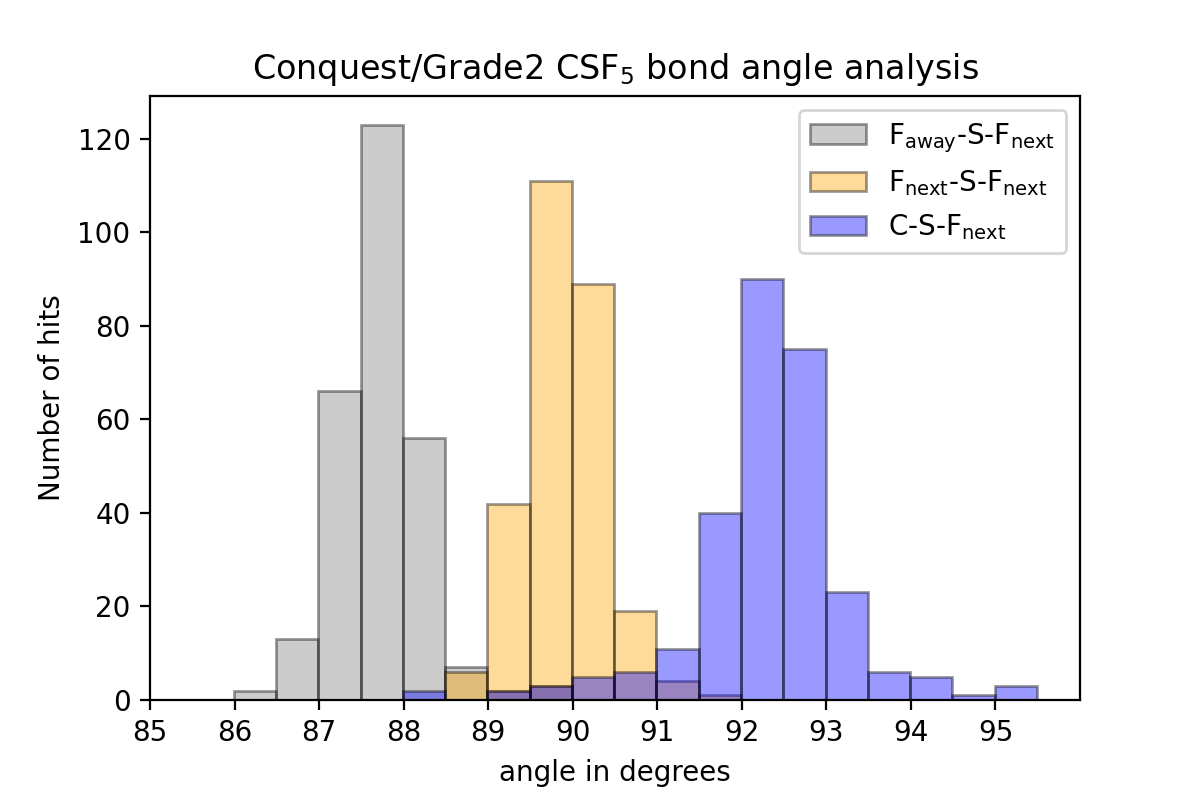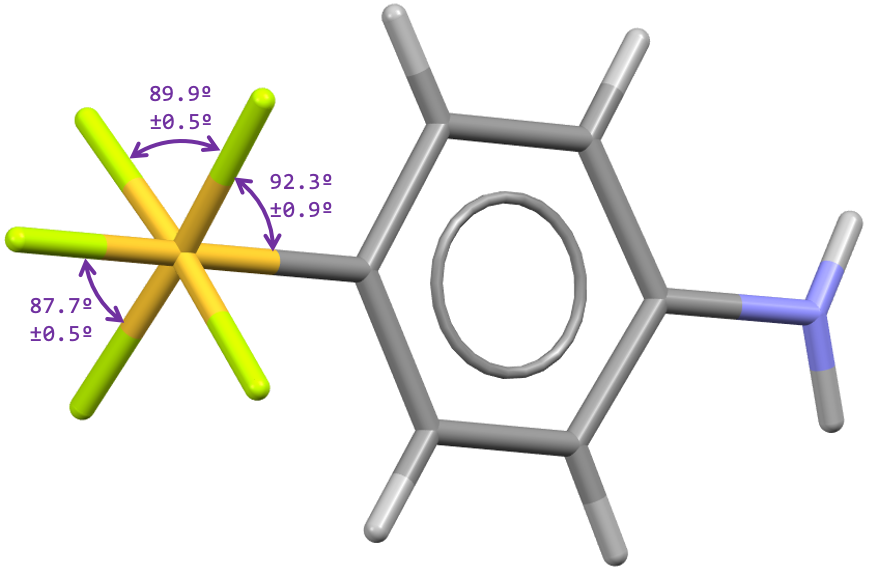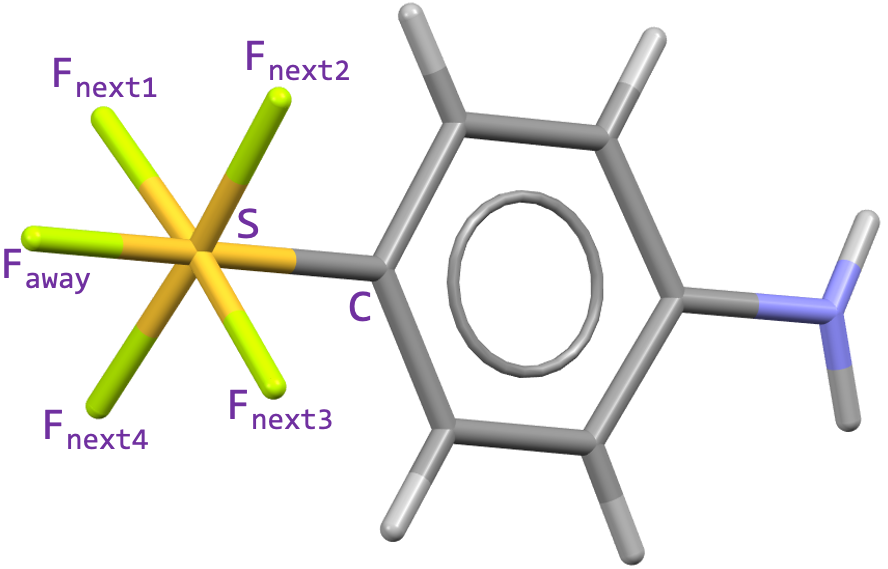Difficult Chemical Groups¶
This chapter describes how Grade2 tackles chemical groups that present problems in restraint generation.
If you come across a chemical group that Grade2 does not handle properly, then please let us know. Please note that it is unnecessary to disclose the whole of your ligand but instead just the problematic chemical group, for instance, by finding a compound in PubChem containing the group.
Pentafluorosulfanyl -SF5¶
The pentafluorosulfanyl (-SF5) moiety is a functional group with useful properties, such as high electronegativity, chemical and thermal stability, that is becoming increasing popular (Chan, 2019).
For restraint generation the pentafluorosulfanyl group present a challenge as it adopts an octahedral molecular geometry.
The octahedral geometry means that the fluorine atoms become non-equivalent and produces bond angles at the sulfur atoms that are close to either 90º or 180º. As shown in the figure above, Grade2 assigns the fluorine atoms so that Faway is opposite the carbon atom and Fnext1is opposite Fnext3.
Restraints for the group were found by using the CSD Conquest program to search for CSF5 in CSD entries with R factors better than 0.05, excluding organometallics and entries with disorder or errors. This identified 68 CSD entries. For each of these Grade2 was used to measure the bond angles at the sulfur atom the CSF5group (excluding the angles close to 180º).

Distribution found in the CSD database for bond angles at the sulfur atom of the CSF5group.¶
The distributions show that that geometry is not exactly octahedral. From release 1.4.0, Grade2 imposes angle restraints using the mean and standard deviation found in the CSD distributions, as shown in the figure and table below.

Grade2 bond angle restraints for the CSF5 group. Values ideal angle and estimated standard deviation (esd or sigma) are shown.¶
Angle |
Ideal angle |
Angle esd |
Notes |
|---|---|---|---|
Faway-S-Fnext* |
87.7º |
0.5º |
|
Fnext1-S-Fnext2 |
89.9º |
0.5º |
|
Fnext1-S-Fnext4 |
89.9º |
0.5º |
|
Fnext2-S-Fnext3 |
89.9º |
0.5º |
|
Fnext3-S-Fnext4 |
89.9º |
0.5º |
|
C-S-Fnext* |
92.3º |
0.9º |
|
C-S-Faway |
180.0º |
999.9º |
inactivated |
Fnext1-S-Fnext3 |
180.0º |
999.9º |
inactivated |
Fnext2-S-Fnext4 |
180.0º |
999.9º |
inactivated |
Note that restraints for all angles involving atoms on opposite sides of the octahedral coordination are inactivated, as the geometry is already heavily restrained by the other bond angle restraints.
It should be noted that RDKit does not handle the CSF5 group well, as it is not supported by the UFF force field as implemented in RDKit. This means that the RDKit SMILES to 3D routine used by Grade2 fails for CSF5 group. As a workaround, Open Babel can generate 3D coordinates for molecules with SF5 group:
$ obabel -:'CS(F)(F)(F)(F)F' --gen3D -O methyl_sf5_obabel.sdf
The resulting SDF file can be used as an input to grade2.
